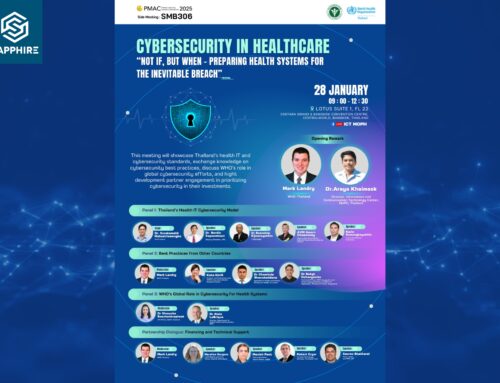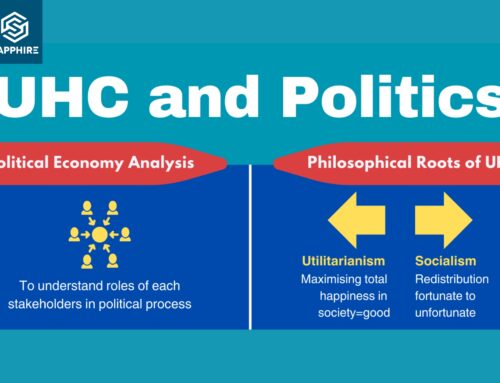Policymakers across the world are regularly required to make crucial decisions about resource allocation and prioritize interventions – medicine A or medicine B, subsidize heart surgery or expand the immunization program.
This process is required to be transparent, accountable and legitimate to safeguard public interests. With the improving macroeconomic conditions, increasing awareness and consumption of health in developing countries, expenditure on health continues to rise inexorably. Majority of this spending comes from the public pool; therefore, it becomes very important to judiciously spend every penny and to consider the ‘value for money’. Decision making or priority setting in health requires careful consideration and meticulous deliberation on a variety of factors such as – clinical evidence, economic feasibility (budget impact and cost-effectiveness), social and ethical factors while fitting ‘value for money’ agenda in the argument. Given the scarcity of resources, a better priority setting implies withholding interventions to some patients or not investing in the lowest ranked health services, even if they are marginally beneficial – on the grounds that resources could be better and more fairly spent elsewhere. Although Health Technology Assessment (HTA) is a beneficial approach to systematically analyze available evidence for a given set of interventions/options, there are notable deficiencies in decisions solely based on HTA. Each country has a distinct set of problems which are beyond the scope of an economic evaluation. For instance, given immense geographical variation in Indonesia each island has unique health demands and being a Muslim majority, the country prefers only halal medicines. Here, the missing link is to inform the technology producers of the specific country demands, so that manufacturers while ensuring return on investment can cater to the public health needs. Thus, the need is to think comprehensively and incorporate all pieces of available evidence rationally to make a informed decision for prioritizing interventions.
(Click to enlarge)
Total Systems Effectiveness (TSE) Patrick Lydon (WHO) WHO Product Development for Vaccines Advisory Committee (PD-VAC) [Internet]. [cited 2018 Aug 6]. Available from: http://www.who.int/immunization/research/meetings_workshops/PDVAC_2017_TSE_Lydon_WHO.pdf
Total System of Effectiveness (TSE)
The Total System of Effectiveness is an approach to identify the value of products from a country health system perspective, both to support national decision-making and to direct market shaping at the global level[1]; An aid to priority setting. It is based on the following hypothesis – firstly, with the emerging innovation and choices, the decision-making process becomes complex and this is a holistic framework for analyzing the trade-offs. It integrates economic factors ( i.e. cost-effectiveness) with epidemiological, pharmacological, ethical and social factors for thorough decision making. Secondly, understanding country-specific demands can help bridge the communication gap between the policy makers and health technology manufacturers. Embedding the value proposition earlier on in the manufacturing process to assist the technology developers can link the products with market demand and articulate product profile needs.
This analytical framework involves all key stakeholders (health providers, health technology producers and health payers) and can inform future investment, procurement and utilization of innovative health technology presentations and delivery. TSE integrates Multi-Criteria Decision Analysis (MCDA) in a decision model with other factors with influence the decision-making process which can be adapted to any country context.
Health Intervention Technology Assessment Program (HITAP) in collaboration with the World Health Organization(WHO) and the National University of Singapore(NUS) is engaged in the pilot of the TSE model for the Rotavirus vaccine in Thailand. Meetings were held from 1st to 2nd August 2018 with a variety of stakeholders.
The meeting on 1st August 2018 included participation from the manufacturers (Thailand, Indonesia, Vietnam), relevant Thai authorities (Thai Food Drug Administration, Department of Disease Control, National Science and Technology Development Agency etc), research organisations (the University of Indonesia, University of Gadja Mada, HITAP, NUS etc.) and was held with the following objectives:
- To review the concept and rationale for total systems effectiveness;
- To consider the differences between preferential product attributes, considering their target markets;
- To examine how consideration of total systems effectiveness can be used to inform preferred product characteristics of products, including shaping those in R&D; and
- To discuss how, or if, TSE can be used by countries (policymakers, Ministry of Health) to guide R&D strategy on the basis of public health need.
The meeting on the 2nd of August had participants from the vaccine-related decision-making bodies in Thailand (sub-committee of National List of Essential Medicines (NLEM), Advisory Committee on Immunization Practice (ACIP)) and manufacturers and researchers from Thailand and Indonesia. The objectives of the meeting were:
- To present results from TSE rotavirus test case in Thailand;
- To identify the value addition by TSE to the existing product selection process in Thailand. (e.g., whether the TSE framework could be strengthened by incorporating practices from the NLEM/ACIP process); and
- To develop recommendations for the future development of TSE.
In the era of Sustainable Development Goals, which calls for a multisectoral approach to tackle the many pitfalls in global health, TSE is an innovative tool which can not only drive innovation but also trigger a relevant dialogue on sustainable public-private partnerships.
The proceedings of the interesting discussions and deliberations which transpired over the two days will be made available soon. Stay tuned!
[1] Giersing, B. (2018). Total Systems Effectiveness – Evaluating all trade-offs to inform choice.





